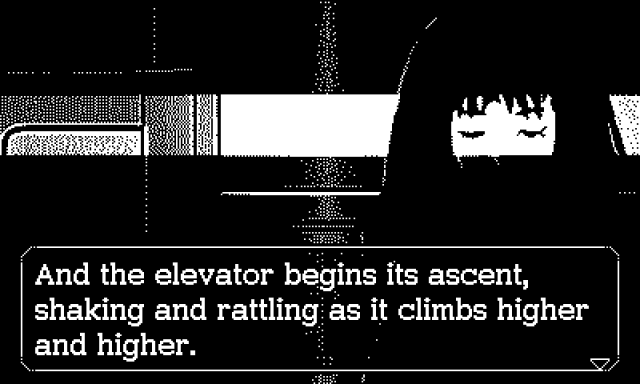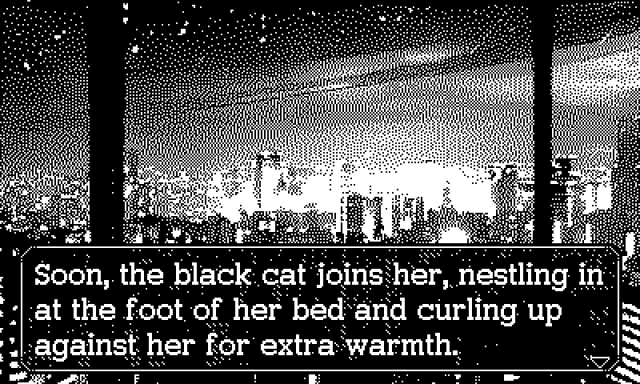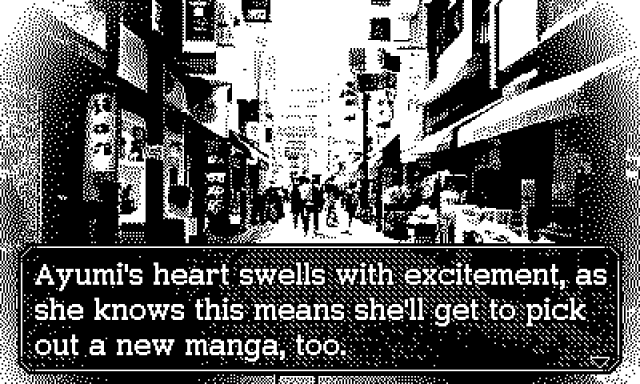I’ve become pretty tired of post-apocalyptic stories because they typically tread the all too familiar ground of human-against-human conflict. For this reason, I treasure the rare story that looks at this genre from a different perspective. Echoes of the Emergent is a prime example of executing this narrative type without sacrificing dramatic flair, even if It’s not without its own flaws.
Echoes of the Emergent is the latest game from the ironically named RNG Party Games, a studio dedicated to narrative-driven experiences. They first made a name for themselves with Bloom, a hybrid between light farming simulation and a visual novel told through text messages. Its dialogue often lacked authenticity and there was an acute lack of interplay between gameplay systems, but it was such a unique experiment that I was on board for whatever the studio did next.
Interestingly, Echoes of the Emergent doesn’t try to push conceptual boundaries like its predecessor did. You’re strictly reading text boxes accompanied by images and audio, putting all the heavy lifting on the story. The writers stepped up to this task; their prose shows an evolution over their previous work.
This tale recounts the plight of Ayumi, a teenager who appears to be the last living human in Tokyo following a world-ending event of unclear (at least initially) origins. She spends every day scavenging for food to survive and treasuring the few moments of peace she’s allowed between these danger-riddled outings. This is complicated by her bouts with anxiety that amplify her fear of going outside and the crumbling infrastructure that make being indoors a safety hazard itself. Dwindling food supplies in her area thrusts her into exploring beyond the mental safety of her boundaries, exacerbating her panic.
Following Ayumi through her struggle to survive is grueling, yet it never feels miserable thanks to fantastic pacing and perfectly timed flashbacks that slowly reveal the mystery of the world and her place in it. There’s a precise pacing that never lingers too long on scenes while still providing them room to breathe. Other moments drag on to help the player understand Ayumi’s anxieties, resulting in a portrayal of the mental illness that felt accurate from my perspective as someone who lives with it.
It’s impossible to discuss much more about the Echoes of the Emergent’s story without spoiling its surprises, but every turn kept me hooked. I couldn’t put the game down during its roughly 3-hour runtime. Unfortunately, it doesn’t entirely stick its landing. The conclusion hinges on its least compelling plot thread with unclear logic, and after wrapping this up, unceremoniously boots you back to the main menu. It feels as if the focus shifts away from Ayumi’s internal growth in these final moments and she’s never given the resolution she deserves. It’s unfortunate that the missed potential caused by a rushed ending dampened the game’s emotional impact after walking away.
I was similarly disappointed by the lack of interactivity. This isn’t to say that player choice should’ve been shoehorned into a story where it’s unnecessary, but simple additions like using the crank to open doors and food cans would’ve broken up the monotony of pressing “A” to read each subsequent text box. Not utilizing the Playdate’s signature feature was a missed opportunity to give Echoes of the Emergent some unobtrusive player agency and justify it as a platform exclusive. Not every Playdate game needs to use the crank, but Echoes of the Emergent offers nothing in lieu of it.
Speaking of questionable platform exclusivity, the Playdate’s lack of a backlit screen felt at odds with the tone of the game. Echoes of the Emergent is an eerie and isolating experience, one that would be best suited for playing in the dark on a system that supports it. While I don’t knock the game for this, it’s an unfortunate irony, and hopefully the game gets ported to other platforms where nighttime play is feasible.
It’s actually to Echoes of the Emergent’s credit that it still engrossingly captures its desolate world through art, music, and sound effects despite this platform-based setback. The abandoned locales that Ayumi traverses are displayed with distorted shadows and subtle gyrating animations that often sent chills down my spine. It’s an effect akin to early polygonal horror games — an obfuscation of detail that leaves your mind to fill in the blanks and spur fear. This is counterbalanced by more cleanly illustrated scenes when Ayumi is at ease, showing the beauty of life when her world is otherwise devoid of it.
The developers allow you to disable the text box at any time by pressing down on the d-pad, allowing you to soak in every detail including those the text covered over. I often found myself taking a few moments to let the art breathe, taking in Ayumi’s surroundings before carrying on with her adventure. For a game that uses full-screen art on a small screen, this was a smart feature.
A multi-faceted soundtrack complements the art’s achievements and seamlessly moves between discordance, heart-pumping thrills, and bliss. This mirrors how Ayumi feels at any given moment; anxiety breeds distortion and warbly tones, while other heightened emotional states add clarity with tense beats or warm synths. A large bank of sound effects also gives the world a heightened sense of realism. You’ll want to plug in headphones to get the most from the game’s soundscape.
I have a few outstanding quibbles with Echoes of the Emergent that I hope are addressed in an upgrade. For one, there are a few typos that stick out, even if they’re scant. There were also moments when the framerate tanked, causing buttons to become less responsive. The game is also devoid of standard-issue visual novel features like a text log, fast-forward function, and multiple save slots. The first of these was an inherent feature of Bloom’s text message conversations, so I hope the team can implement it here. Finally, some extras like a gallery for art and music would be welcome. Bloom had a soundtrack mode, and Echoes of the Emergent deserves the same.
But these flaws and even a less-than-stellar ending don’t override all the ways in which this game prevails. On a platform better known for its quick arcade games, Echoes of the Emergent stands out as one of the most substantial narrative offerings. Every Playdate owner owes it to themselves to give it a shot, especially at the low price of $8. It left me even more excited to see what RNG Party Games is cooking with their forthcoming RPG For Home.





